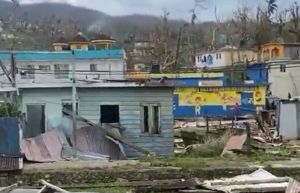Last winter's polar vortex may have been brutal, but new research suggests there is more to come thanks to global warming.
A new study suggests as the world gets warmer regions of North America, Asia, and Europe could experience more onslaughts of frigid air, the Associated Press reported. The research was conducted by Jin-Ho Yoon of the Pacific Northwest National Laboratory and colleagues.
A polar vortex occurs when wind that is normally confined to the Arctic escapes southwards. A number of things can cause this, but the recent study suggest one of these triggers can occur when northern sea ice shrinks and leaves more open water exposed. Sea ice works to keep heat energy from being released into the atmosphere, but when there is less ice and a higher release of energy the jet streams become weaker; these jet streams usually keep Arctic air from escaping the region. This study focused on the impacts of shrinking ice, but there could have been another trigger for last year's polar vortex.
Kevin Trenberth, climate analysis chief at the National Center for Atmospheric Research does not agree with the study. His research suggests the phenomenon may be more closely related to occurrences in the Pacific rather than the Arctic.
Sea ice usually reaches an annual low in September, but in 2012 they reached a record low. This year they are up slightly, but the minimum ice extent is still about 40 percent of what it was in the 1970s. Trenberth believes Yoon's study focuses to strongly on the "unusual" conditions of 2012, the AP reported.
Despite the objections, other researchers have praised Yoon's work; some applaud the way the research examines more than just how sea ice affects weather across the globe, but looks at it through the lens of a specific mechanism.
"[The study] provides important insight into the cascading nature of the effects human activities are having on the planet," Katharine Hayhoe, a Texas Tech climate scientist told the AP.
The findings were published in a recent edition of Nature Communications.
© 2025 HNGN, All rights reserved. Do not reproduce without permission.








